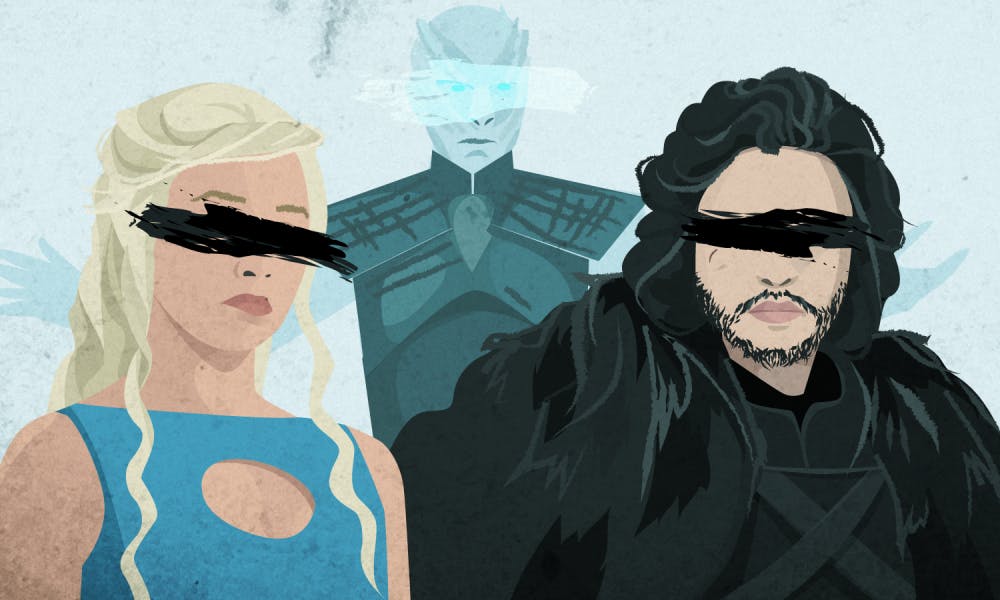The Emmys didn’t create much buzz this year. Perhaps it’s because they were competing with Sunday Night Football, or perhaps because everyone simply forgot they were happening—I know I did. Fewer than seven million people tuned in for the broadcast—the lowest in the award show's history. Despite this, Twitter was still abuzz with fashion judgments, commentary on presenters, and delighted cheers for winners all around. Yet the most shocking thing about the 2019 Emmys is that they weren’t that shocking at all.
Bill Hader won again for Barry. Peter Dinklage won for the fourth time for Game of Thrones. Tony Shalhoub was nominated again for The Marvelous Mrs. Maisel, and won this time—same with his costar Alex Borstein. Even relative newbies that won were actors on already–prolific television shows, like Julia Garner for Ozark—which had nine total nominations and a win for directing this year. The newest and most surprising addition to the field was Fleabag, which didn’t quite sweep but won some major awards.
The big awards of the evening were Outstanding Comedy Series and Outstanding Drama Series, the former of which went to Fleabag and the latter of which to Game of Thrones. Game of Thrones, HBO’s never–ending drama, just wrapped up its final season two months ago to a shocked, dismayed, and incredibly disappointed audience. The show's ending was discussed as a How I Met Your Mother–level travesty, with a final season that went completely off the rails. However, Game of Thrones has always been an Emmy darling; it has a whopping 161 Emmy nominations—a record in itself—and has won 58 of them. Game of Thrones effectively created the genre of prestige fantasy television and redefined television as a whole; despite its gore, sex, and heavily political plot, all of America was hooked for years on end.
Yet, in a turn of events, everyone was mad that Game of Thrones won Outstanding Drama. It was up against fan–favorites Killing Eve and Pose, both diverse television shows. Game of Thrones’ win was frustrating because it felt uninspired, like the Emmy was given to them simply out of habit.
Another relative upset of the evening was Julia Louis–Dreyfus’ loss for Best Actress in a Comedy, an Emmy which got swept up in the wave of Fleabag. Dreyfus, best known for her role on Seinfeld, won that same award for six consecutive years since Veep’s first season. Now, with the show’s final season, critics assumed she would get it one last time to celebrate all her work on the show. Particularly poignant is that Dreyfus has been battling cancer throughout Veep's final season and has been talking about it frankly in the news. However, newbie Phoebe Waller–Bridge of Fleabag received the prize—marking a total of six Emmys for the show and three for Waller–Bridge herself.
A point of confusion in the evening was Jodie Comer’s win for Killing Eve. It's not that Comer isn't a fantastic actress portraying a deeply layered part—she definitely is—but her costar, Sandra Oh, has been the critics’ predicted win for two years now. Oh was nominated for her role of Eve Polastri on Killing Eve last year, but she has a total of eight nominations in her career, none of which she’s won. Particularly damning is that Oh was nominated for two separate awards this year: Outstanding Lead Actress in a Drama for Killing Eve and Outstanding Guest Actress in a Comedy Series for Saturday Night Live. Also, if Oh had won for Lead Actress this year, it would make her the first Asian–American actress to win that part. People believe that Oh deserved that win because she’s been nominated so many times, yet has gone unrecognized.
The main takeaway from the Emmys is that there seems to be a tug between the old and the new. People were upset that the Emmy–favorite Game of Thrones won again, but were also upset that Emmy–favorite Julia Louis–Dreyfus didn’t continue her streak for Veep. Sandra Oh deserved the win because she had been nominated so many times and never won, but Dreyfus in equal measure deserved the win because she had already won so many times. Actors who had been nominated last year but didn’t win took home many awards for supporting roles, noticeably Tony Shalhoub and Alex Borstein. This was a year of predictable newbies or unsurprising past–winners, which is to say, despite any upsets, this was a year of nothing new.
It's clear that the public perception of who is “worthy” is based on a subjective take. While the Emmys are no grand indication of inherent quality, this was a year where all of the “new” winners were not very new at all, or were already predicted of receiving a win. Perhaps next year, with Game of Thrones and Fleabag having wrapped up, other shows will get a chance to shine.







